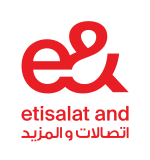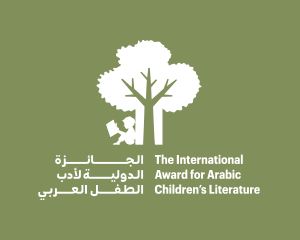General Criteria
- The book must be published in the Arabic language and must be an original work. Translated works are not eligible.
- The book must be published in printed format. Textbooks, E-books, audiobooks, and manuscripts are not eligible.
- The book must not have received any local, regional, or international award prior to the deadline of submission of entries.
- It should be an original work. The entry must not infringe the copyright or any other rights of any third party. The intellectual property rights of the authors, illustrators, and other producers of the work must be respected.
- Books must have been published no more than 5 years preceding announcement of the Award.
- Educational or scientific books and books in series are not eligible for entry, except for submissions to the Non-Fiction category, where factual content is creatively and accessibly presented. Please refer to the specific eligibility criteria for the Non-Fiction category for acceptable formats and themes.
- Short story collections, collected poems, articles, biographies, autobiographies, how-to guides, activity books, and reference books (such as encyclopedias, atlases, and dictionaries) are not eligible across all categories, including Non-Fiction, with the exception of narrative non-fiction that tells true stories using literary techniques. Please refer to the specific eligibility criteria for the Non-Fiction category for details on accepted formats.
- Books in the same series may be judged together or separately, at the sole discretion of the judges.
- New editions of previously published books are not eligible.
- Works of joint authorship or editorship are eligible.
- Books submitted should be published by a publishing house or a registered organisation. Self-published books are not eligible.
- The entries must be submitted through a publishing house or a registered organisation.
- Publishers should not submit entries that they have already submitted to the same category in previous editions of the Award. Any such entry will be disqualified.
- The jury is authorized to disqualify any entry that does not comply with the above conditions.
- The jury has the right to withhold the award.
- No entrant may object to the decisions of the jury.
- Works that have reached the shortlist of the award should be available during Sharjah International Book Fair.
Judging Process
The judging process of the International Award for Arabic Children's Literature is conducted with full transparency and the utmost professionalism. This has served the Award’s prestige and provided publishers with a greater incentive to submit their best books to the Award. Entries are evaluated by an independent judging panel, which chooses the shortlist and winner.
The judging process is conducted according to the clauses listed below.
To ensure transparency in the selection of the members of the judging panel, the following will be taken into account:
- Members of the judging panel are not allowed to enter any of their works for the Award.
- To the fullest extent possible, the judging panel will be composed of members with a broad and diverse range of qualifications and specialisations, such as publishers, authors, critics, illustrators, and other experts.
- The jury may seek the assistance of experts in the fields of science, literature or the arts when needed in so far as this remains in compliance with the principles of confidentiality and full neutrality and is in full adherence to the points above.
- The composition of the judging panel is completely confidential, and the names of the members will not be revealed before the winners of the Award have been announced.
- The members of the judging panel should be diverse in terms of geographical and national backgrounds.
The Award’s management shall form a judging panel each year, provided that it includes a minimum of three members with relevant expertise, competence and integrity.
The names of the members of the judging panel and the content of their discussion during their meetings shall remain confidential. The Award's management may announce the names of the members during the final awards ceremony.
The panel’s work begins the day after the signing the agreement with the Award’s management. It shall end upon their submission of a report on a date determined by the Award’s management.
The judging panel shall present a written report presenting the results of their discussions. The report should specify the reasons behind the choice of the winning books in each category.
The choice of winning books shall be decided by majority vote.
The constitution of the judging panel is secret, and the names of its members should not be revealed before the announcement of the winning book. Judges are not permitted to announce or reveal that they are members of the International Award for Arabic Children's Literature judging panel. Nor are they allowed to disclose the results of the deliberations of the judging panel to any external party.
If any member of the judging panel cannot attend a meeting due to an emergency, his or her written report shall be considered sufficient. He/she shall have no right to object to the decision(s) made by judging panel during the meeting.
A judge shall withdraw from the judging panel if one of his/her relatives of the first or second degree has a work submitted for the award.
The judging panel shall evaluate the books submitted for the Award in accordance with the rules and criteria specified by the Award's management.
The jury reserves the unequivocal right to transfer submission from one section to another, if deemed necessary.
If a winning book has more than one author, the prize money will be divided equally between them or as per the judging panel’s decision.
For Non-Fiction Submissions: The jury will consult subject-matter experts (e.g., scientists) to verify accuracy.
Judges may request additional documentation from publishers.
Sponsored By
Etisalat and
Since 1976, we have pioneered new technologies and brought these to new people and new places. First as the Emirates’ telephone company, today as the global technology group, e&. Etisalat and is the largest telecommunication corporation in the GCC. Headquartered in Abu Dhabi UAE, Etisalat serves 11.6 million customers and over 300,000 small, medium and large enterprises and government customers in the UAE.

Organized By
The UAE Board on Books for Young People (UAEBBY)
The UAE Board on Books for Young People (UAEBBY) is the local branch in the United Arab Emirates of the International Board on Books for Young People (IBBY). Founded in Switzerland in 1953, IBBY is an international network of individuals and organizations.









